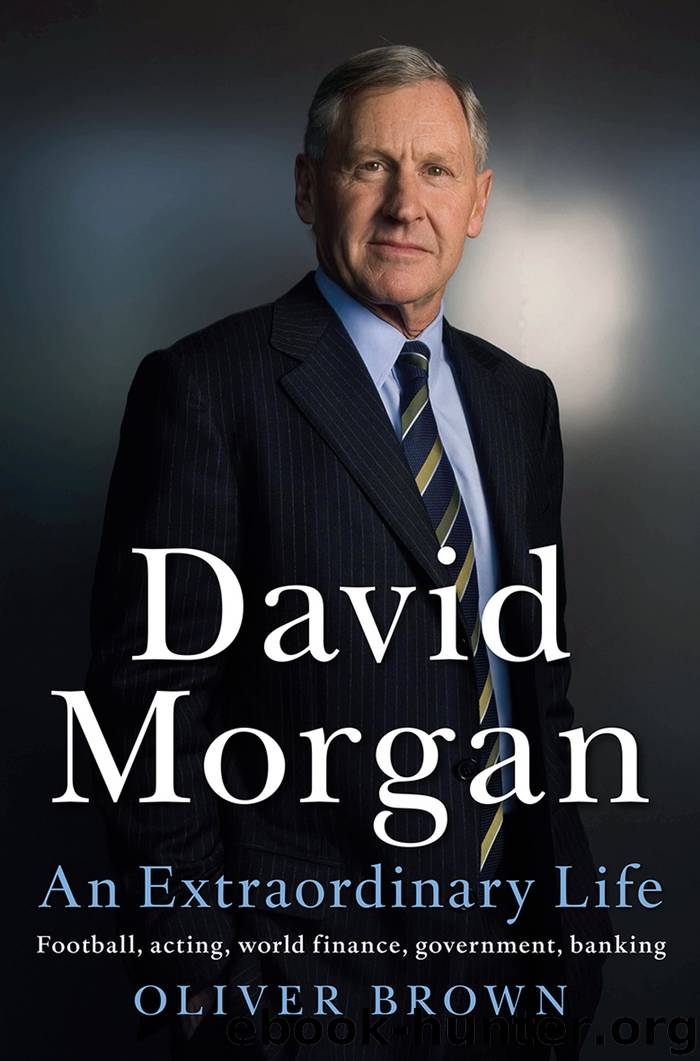David Morgan by Oliver Brown

Author:Oliver Brown
Language: eng
Format: epub
Tags: ebook
Publisher: Hardie Grant Publishing
Published: 2019-01-15T16:00:00+00:00
CHAPTER 8
Culture Shock
As a foreign element implanted into the Westpac body politic, Bob Joss was a leader who cut against the grain. Understated, cerebral, averse to flamboyant public pronouncements and scrupulous about keeping fit, he brought a convivial Californian air at odds with the ancien régime, which had been characterised by insularity and largesse. ‘Bob was very West Coast,’ says Ann Sherry, who joined the bank in 1994 to help reshape its culture. She would eventually become one of the most influential women in Australia.1 ‘When he spoke to people about the business, he would sit on a stool with his legs crossed. He almost needed a guitar.’2
Sometimes, the hiring of Americans to fight financial fires in a foreign market could go awry. George Trumbull, for example, prised from US insurance giant Cigma to take charge at AMP, was in many eyes a bombastic headbanger, who once fist-pumped the air and declared that he was ‘king of the world’.3 Against this yardstick, Joss, Australia’s first $1-million-a-year banker, was a study in moderation.
‘He was the first person I ever heard say, “You never do one thing at a time,”’ recalls Edna Carew, author of Westpac: The Bank that Broke the Bank, the definitive account of the early nineties turmoil. ‘If he was on his exercise bike, he would be reading the papers and watching the TV news. The average Westpac guy, by comparison, looked pretty well fed. They would indulge in lavish lunches, even in-house. Joss’s view was: “What the Dickens? Wine and port? This is ridiculous. Get rid of all that. Save costs.”’4
On this front, he was squarely aligned with Morgan, who had already sliced through the retail bank’s bloated expenses with the sharpest blade, a move since heralded as the ‘centrepiece’ of Westpac’s recovery from its near-death experience.5 The parallels between the pair were self-evident: both had plied a path from public service, and both placed a premium upon intellectual capital in banking. Ernie Arbuckle, a former chairman of Wells Fargo during Joss’s era, had sought to weave the closest links between the company and Stanford Business School, which he had steered to prominence in the sixties. It is to this seat of learning that Joss, holder of an MBA and PhD from Stanford, has since returned as dean emeritus.
In an interview at his office in Palo Alto, a leafy focal point of Silicon Valley, Joss identifies the scholarly dimension that he shared with Morgan as a rich area of common ground. ‘In some ways, David and I were the extrovert versus the introvert,’ he says. ‘But we each had training in graduate-level economics and we approached problems with the same intellectual rigour.’6
Any recriminations that Morgan felt at losing out to Joss for the CEO position soon dissolved. Indeed, as George Parker, distinguished professor of finance at Stanford and a fixture at the university since 1973, argues, unsolicited, during conversation with Joss: ‘The friendship that David has with Bob is quite extraordinary, because they had the potential to be terribly rivalrous.
Download
This site does not store any files on its server. We only index and link to content provided by other sites. Please contact the content providers to delete copyright contents if any and email us, we'll remove relevant links or contents immediately.
Waking Up in Heaven: A True Story of Brokenness, Heaven, and Life Again by McVea Crystal & Tresniowski Alex(37641)
Still Foolin’ ’Em by Billy Crystal(36259)
Cecilia; Or, Memoirs of an Heiress — Volume 1 by Fanny Burney(32412)
Cecilia; Or, Memoirs of an Heiress — Volume 3 by Fanny Burney(31822)
Cecilia; Or, Memoirs of an Heiress — Volume 2 by Fanny Burney(31802)
Fanny Burney by Claire Harman(26508)
Empire of the Sikhs by Patwant Singh(22962)
We're Going to Need More Wine by Gabrielle Union(18951)
Hans Sturm: A Soldier's Odyssey on the Eastern Front by Gordon Williamson(18454)
Plagued by Fire by Paul Hendrickson(17314)
Out of India by Michael Foss(16777)
All the Missing Girls by Megan Miranda(15491)
Cat's cradle by Kurt Vonnegut(15153)
Pimp by Iceberg Slim(14319)
Molly's Game by Molly Bloom(14049)
Bombshells: Glamour Girls of a Lifetime by Sullivan Steve(13952)
Leonardo da Vinci by Walter Isaacson(13148)
For the Love of Europe by Rick Steves(12646)
4 3 2 1: A Novel by Paul Auster(12263)
